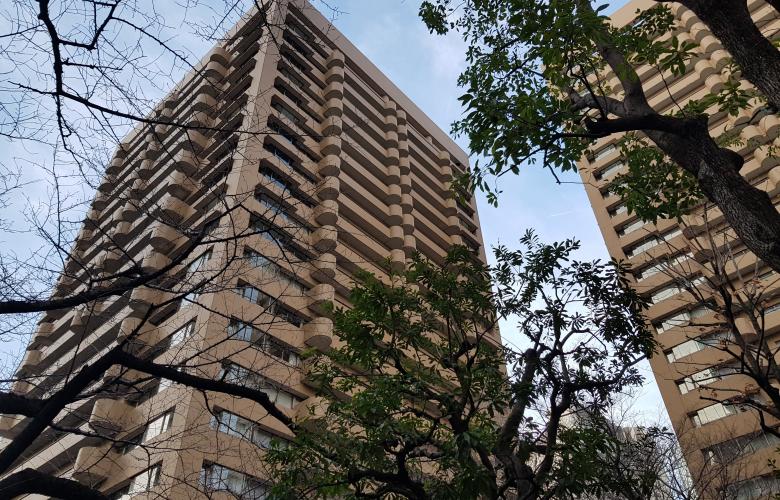Very important information to read:
This article is intended as a preliminary guide only and refers to some but not all elements required to consider in detail prior to starting any property dealings or due diligence. Property dealings are often complex, especially in foreign countries and we highly recommend you seek independent professional advice... read more... Tokyo’s property prices have neared 30-year highs this year, fueled by Japan’s strong economic upturn and the approaching 2020 Olympics. The capital’s real estate market is hot and many units are snatched up as soon as they enter the market. In such a fast-paced market it is easy to lose sight of the bigger picture and final closing costs tacked on to the advertised prices.
Here is an overview of the costs that you need to account for on top of the property prices when buying apartment units and houses in Tokyo. In general, as a rule of thumb, calculate for about 7% on top of the sales price in taxes and fees.
Taxes
You will need to account for stamp tax (also called stamp duty), real estate registration tax, and acquisition tax.
Stamp tax
Stamp tax depends on the price of the property you are buying and totals between JPY 5,000 to JPY 480,000. Here is a table to calculate the cost.
Registration tax
Registration tax is due when the ownership of property is transferred. In Japan, it is customary for the buyer to cover the cost, which is 1.5% for the fixed asset value of the land and 0.3% for the fixed asset value of a building if it is to be used as a home, or 2% if it is to be rented out or a second home. The fixed asset value for the property is calculated by the ward office where the property is located and usually much below market value. Mortgage registration will be added to this if you are taking a loan out, which is 0.4% or 0.1% if you qualify for a reduction.
Acquisition tax
Within 6 months of acquiring your new property, you will receive mail from the tax office with a bill for acquisition tax. This again is based on the lower-than-market-price fixed asset value and 1.5% for land and 3% for buildings. There are deductions for second-hand homes.
Other fees
Brokerage fee
Almost all real estate transactions in Japan are done with the help of real estate agents. Their brokerage fees are fixed at 3% commission of the property sales price, plus JPY 60,000, plus consumption tax, which is currently 8%, but may be raised again soon. Note that the fee is to be calculated from the property price before consumption tax — so check that you aren't being overcharged!
Scrivener fee
A judicial scrivener needs to be present at the contract signing and it is common practice for the buyer to pay their fee, which depends on the services provided and is generally tens of thousands of yen.
Ongoing costs
After purchase, there are ongoing monthly and annual costs that need to be accounted for. These include fixed asset and city tax, fire and earthquake insurance, management and repair fund fees, and as well as your mortgage fees if you have taken out a loan.
Fixed asset and city tax
These taxes are calculated differently for each property, depending on its age, value, and portion of land owned with the property, so enquire with your agent beforehand what the annual fees will amount to. In general, it is 1.4% fixed asset tax, calculated from the base taxation amount and 0.3% city tax of the base taxation amount. These taxes can be paid in one or four annual installments.
Fire and earthquake insurance
If you are taking out a mortgage, fire insurance is mandatory, and earthquake insurance can be purchased in tandem, but not on its own. Payouts of earthquake insurance are often capped at JPY 50 million, regardless of the market price of the property, so enquire with insurers about premiums and payouts.
Management and repair fund fees
If your property is a condo or a unit in an apartment complex, you will need to pay monthly fees to the building management company and the repair fund. The fees are calculated based on the size of your apartment and are generally in the range of JPY 300 to 600 per square meter per month. Brand new buildings might have initially lower fees and some buildings might have much higher fees, so make sure to enquire with your agent about the monthly sum. This is an especially important consideration when purchasing an investment property as it can significantly reduce ROI.
Mortgage fees
Aside from your monthly payments, your bank will charge interest and mortgage fees. Enquire with different financial institutions to find out about their terms.
By Mareike Dornhege
Similar to this:
Tax breaks for home buyers in Japan
Property taxes in Japan
Buying property in Japan
Very important information to read:
This article and the above linked articles are not complete and are intended as preliminary guides only. These guides refer to some elements to consider prior to starting any property dealings or due diligence. Property dealings are often complex areas, especially in foreign countries and we highly recommend you seek independent professional advice... read more... 




